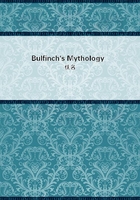
第11章
"The wall he sets 'twixt Flame and Air, (Like that which barred young Thisbe's bliss), Through whose small holes this dangerous pair May see each other, but not kiss."In Mickle's translation of the Lusiad occurs the following allusion to the story of Pyramus and Thisbe, and the metamorphosis of the mulberries. The poet is describing the Island of Love.
" here each gift Pomona's hand bestows In cultured garden, free uncultured flows, The flavor sweeter and the hue more fair Than e'er was fostered by the hand of care.
The cherry here in shining crimson glows, And stained with lover's blood, in pendent rows, The mulberries o'erload the bending boughs."If any of our young readers can be so hard-hearted as to enjoy a laugh at the expense of poor Pyramus and Thisbe, they may find an opportunity by turning to Shakespeare's play of Midsummer Night's Dream, where it is most amusingly burlesqued.
Here is the description of the play and the characters by the Prologue.
"Gentles, perchance you wonder at this show;
But wonder on, till truth makes all things plain.
This man is Pyramus, if you would know;
This lovely lady Thisby is certain.
This man with lime and roughcast, doth present Wall, that vile Wall, which did these lovers sunder;And through Wall's chink, poor souls, they are content To whisper. At the which let no man wonder.
This man, with lanthorn, dog and bush of thorn, Presenteth Moonshine; for, if you will know, By Moonshine did these lovers think no scorn To meet at Ninus' tomb, there, there to woo.
This grisly beast, which by name Lion hight.
The trusty Thisby, coming first by night, Did scare away, or rather did affright;And, as she fled, her mantle she did fall, Which Lion vile with bloody mouth did stain.
Anon comes Pyramus, sweet youth and tall, And finds his trusty Thisby's mantle slain;Whereat with blade, with bloody blameful blade, He bravely broached his boiling bloody breast;And, Thisby, tarrying in mulberry shade, His dagger drew and died."Midsummer Night's Dream, v.1,128, et seq.
CEPHALUS AND PROCRIS
Cephalus was a beautiful youth and fond of manly sports. He would rise before the dawn to pursue the chase. Aurora saw him when she first looked forth, fell in love with him, and stole him away. But Cephalus was just married to a charming wife whom he loved devotedly. Her name was Procris. She was a favorite of Diana, the goddess of hunting, who had given her a dog which could outrun every rival, and a javelin which would never fail of its mark; and Procris gave these presents to her husband.